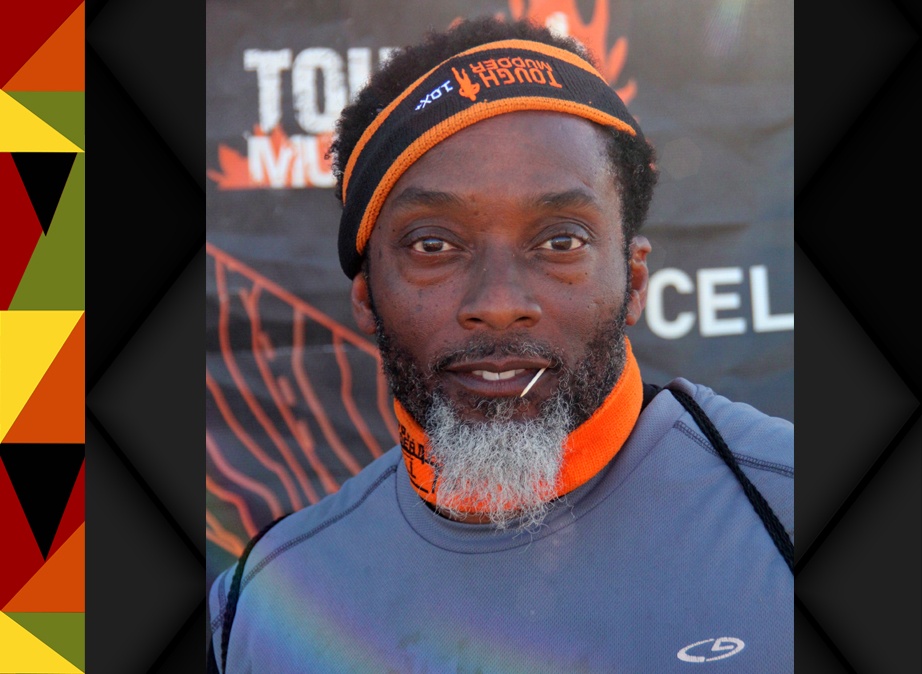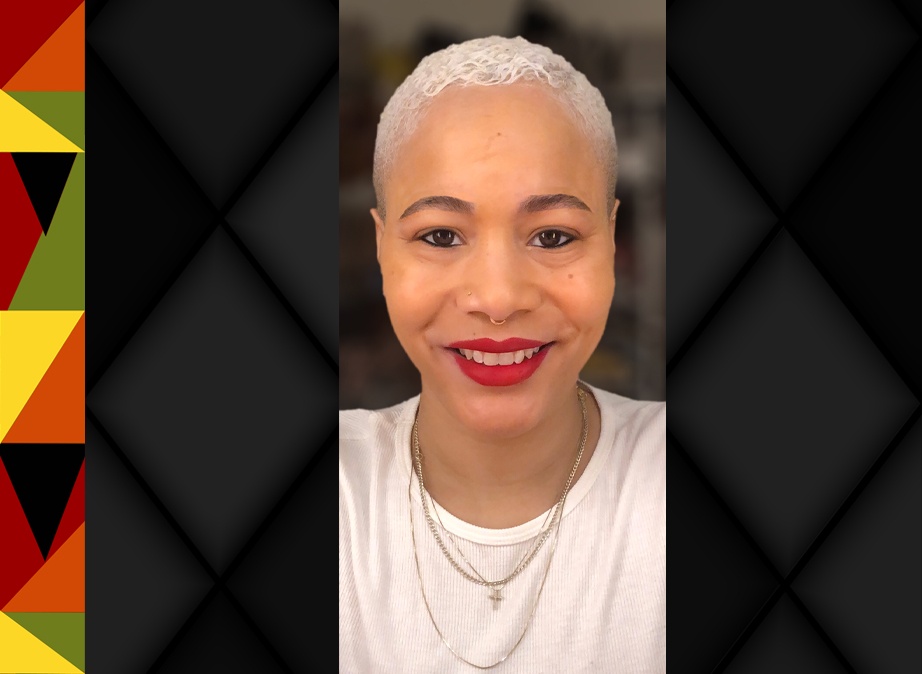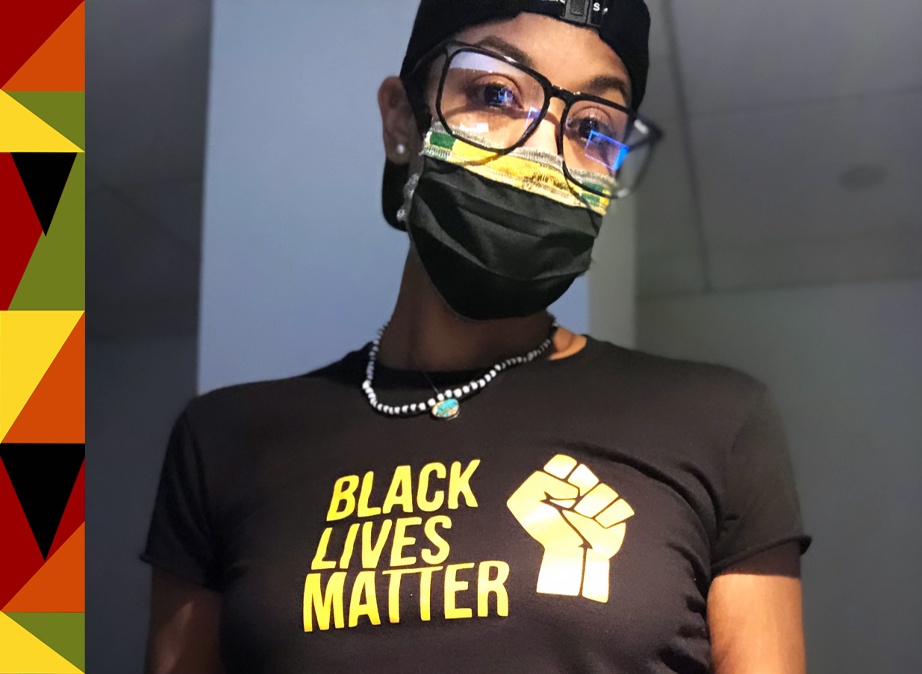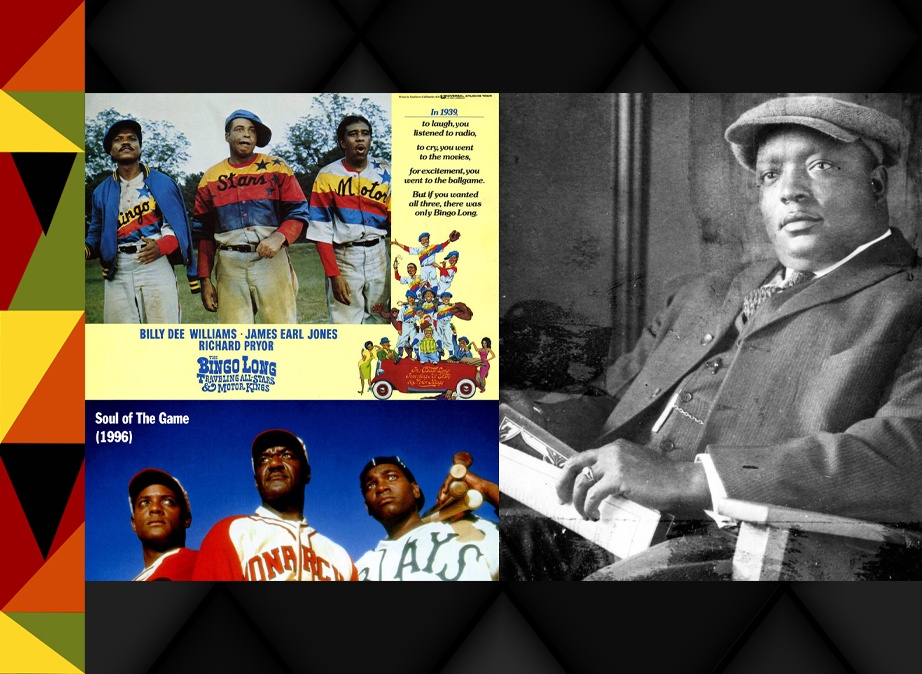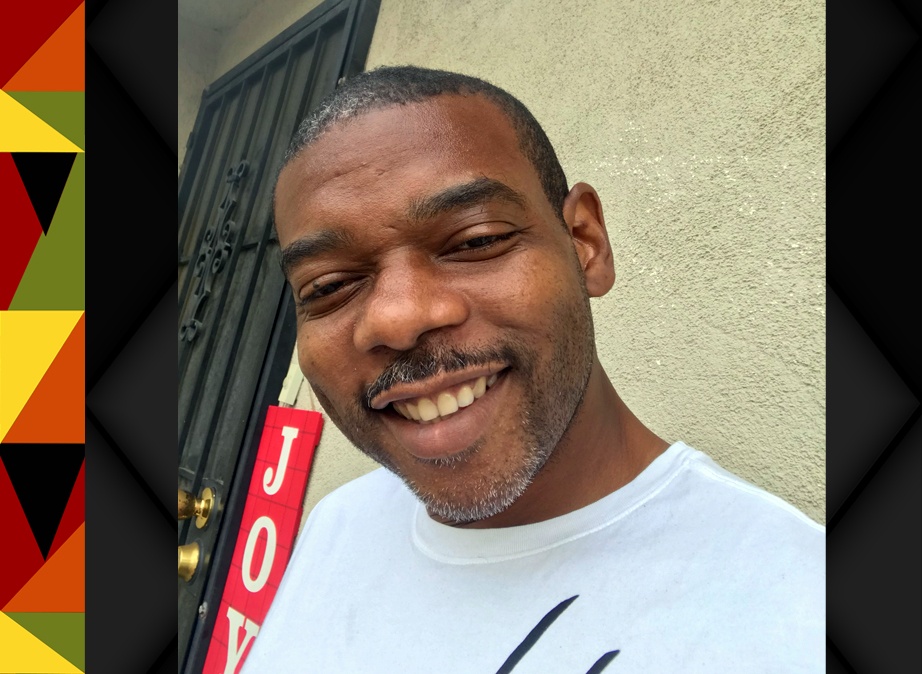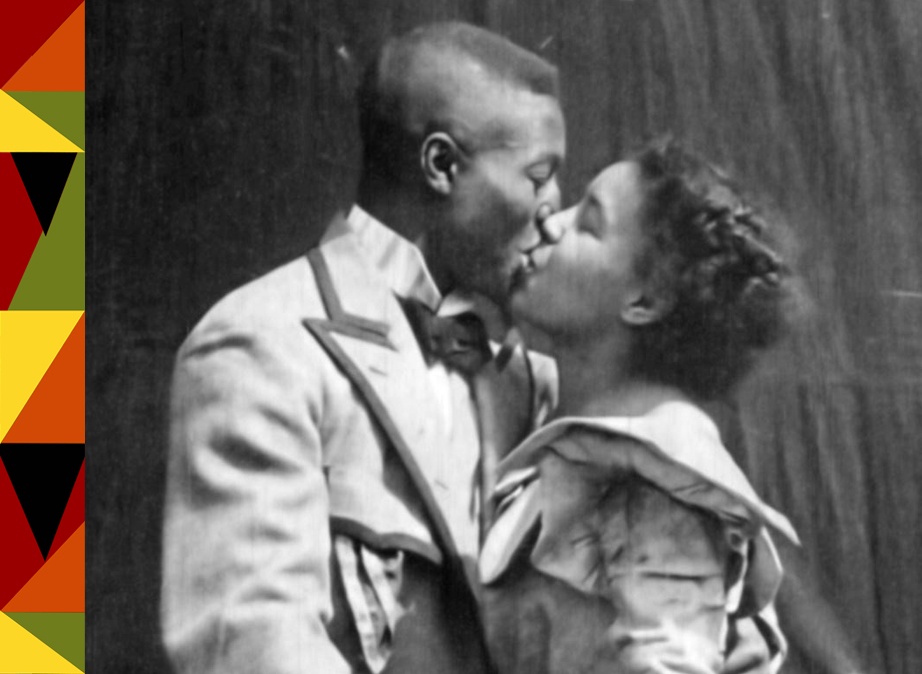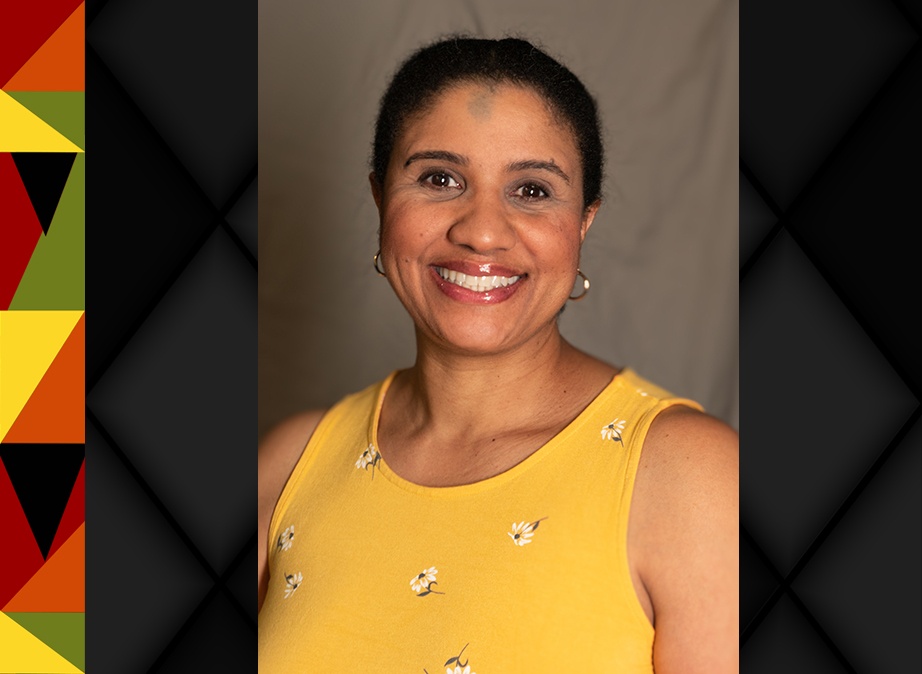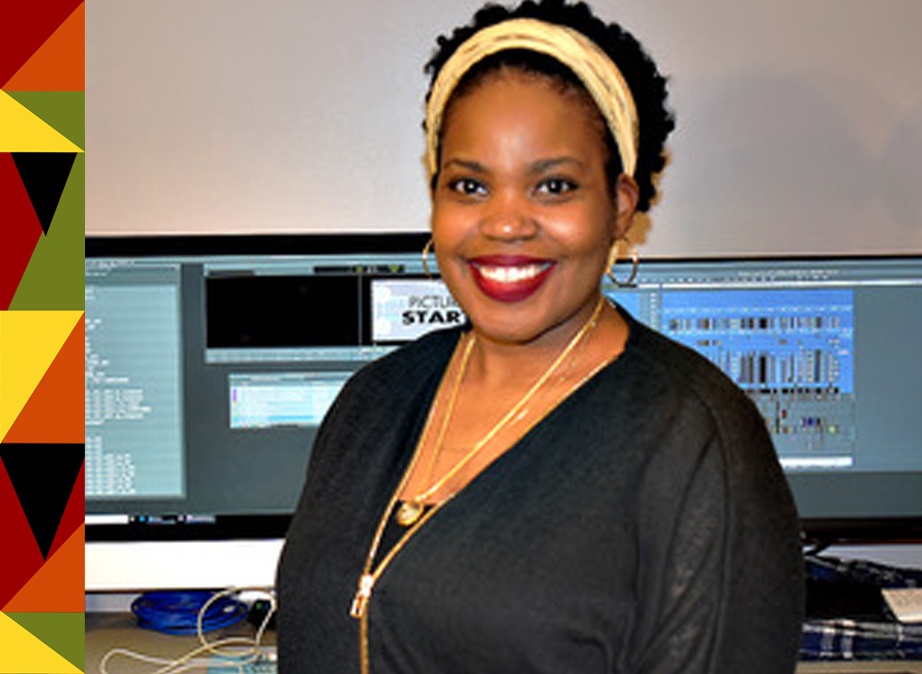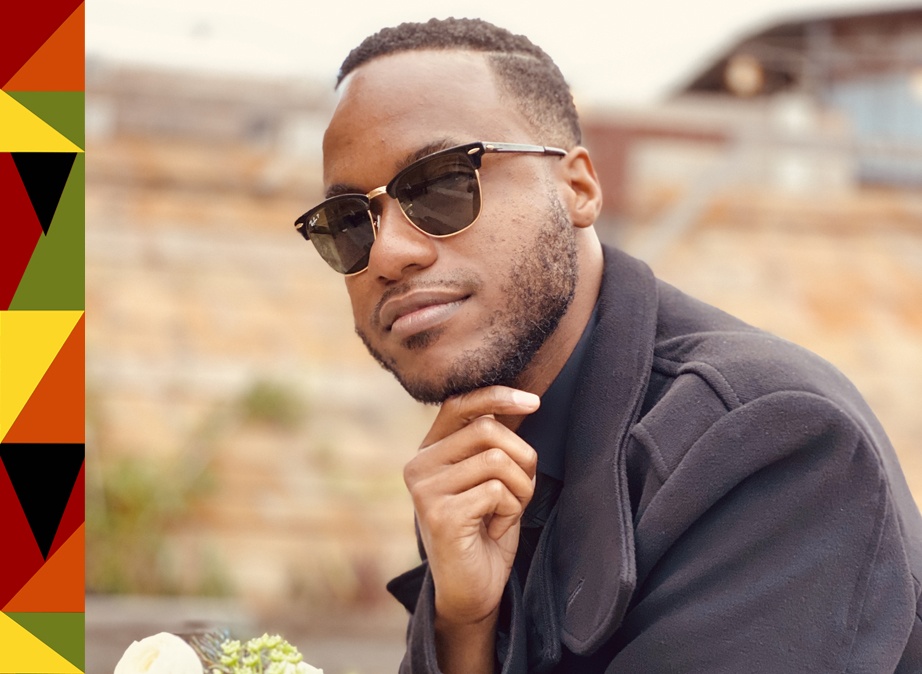For each day in the month of February, the Committee will be highlighting African-American members, both past and present, and their accomplishments. We look forward to showing the contributions and influences African-Americans have had on the industry.
Departments
Cut to Black: Kristin Valentine, Assistant Picture Editor
For each day in the month of February, the Committee will be highlighting African-American members, both past and present, and their accomplishments. We look forward to showing the contributions and influences African-Americans have had on the industry.
Name: Kristin Valentine
What’s your job? Assistant Picture Editor
List the credits you’re most proud of. “What’s My Name: Muhammad Ali,” “Euphoria,” “Dune”
What are you working on right now? Indie Comedy Feature written and directed by Lena Dunham
Who and what are your influences and/or mentors? My parents are my biggest inspirations and influences. Aziza Ngozi and Joi McMillon, ACE are my mentors and biggest supporters. Both are women whose professional and personal successes and overall character I aspire to.
What books are you reading, shows are you watching and/or movies you’re excited about? I’m reading “Peace Is Every Step: The Path of Mindfulness in Everyday Life” and “The Autobiography of Malcolm X” (for the first time!). I’m excited about “Snowfall,” love “The Crown,” obsessed with “Succession” and dying to see “Judas and the Black Messiah!”
What would be your superhero name? Math Maniac lol
What are your Black History Month memories and any cultural or historical impacts on your life? I did a presentation on Angela Davis and her book “Women, Race and Class” during black history month in high school. It was my first introduction to intersectionality and how blackness and gender equally contributed to my experience in the world.
What’s the best piece of advice you’ve been given? Don’t let the bad in the world compromise the good in you.
If you could time travel, when would you go and why? I’d travel to the 70s for the fashion, to party with my parents, and see the hype around Studio 54 and Woodstock lol.
What’s a little known fact about you? What are your hidden (or not so hidden) talents? I worked for the Department of Defense, love math and can talk like Donald Duck lol.
What’s your favorite (Black) television/movie moment? Martin proposing to Gina with Brian McKnight #Swoon.
What’s your personal/professional mantra? Pursue your interests, but only commit to what you love
What’s the last show/movie that left you speechless? What would be your dream project to work on? “Uncut Gems! I think my heart is still racing lol. My dream projects are authentic dramatic narratives with unconventional story elements. Specifically, magical realism. “Beasts of the Southern Wild” is my ultimate dream project.
Cut to Black: Brandice C. Brown, Lead Assistant Editor/Assistant Editor
For each day in the month of February, the Committee will be highlighting African-American members, both past and present, and their accomplishments. We look forward to showing the contributions and influences African-Americans have had on the industry.
What’s your job? Lead Assistant Editor/Assistant Editor
List the credits you’re most proud of. “Insecure, “Big Brother,” “Celebrity Big Brother,” “Dancing With The Stars,” “The Cabin with Bert Kreischer”
What are you working on right now? I wrapped on Fox’s “New Year’s Eve Toast & Roast” in January, and then took a much needed break to work on some personal projects. But I’m sure I’ll be back to my workaholic ways soon.
What’s the best piece of advice you’ve been given? Don’t take anything personally. The way people treat you usually has nothing to do with you and everything to do with them.
Cut to Black: Honoring the Negro League and Its Influence on Film
For each day in the month of February, the Committee will be highlighting African-American members, both past and present, and their accomplishments. We look forward to showing the contributions and influences African-Americans have had on the industry.
Jackie Robinson breaking the color barrier into Major League Baseball has become an American tale of perseverance and strength. But the story of African Americans in baseball did not begin or end there. For players of Robinson’s caliber to rise, there needed to be a forum where their skills could be showcased for the Nation. 3,400 players were given that opportunity from 1920-1948 in the Negro Leagues.
On February 13th, 1920, at the Paseo YMCA in Kansas City, Missouri, Andrew “Rube” Foster, a former flame-throwing right-handed pitcher now club owner, and seven other team owners banded together to form the Negro National League. At this meeting, Rube was elected President of the league and given the task of managing every aspect of the game.
1976’s “Bingo Long Traveling All-Stars & Motor Kings” centers on a Negro League pitcher who takes a page out of Rube Foster’s book by starting his own barnstorming team out on the road. This Motown production stars Billy Dee Williams, James Earl Jones, and Richard Pryor. The film successfully made $33 million from a budget of $9 million. While also winning a Writers Guild Award for Best Comedy and an NAACP Image Award for Mr. Williams. Former Negro League players participated in not just game action but additional stunts throughout the film. Mr. Williams and Mr. Jones’ characters were loosely based upon former Negro League stars Satchel Paige and Josh Gibson.
Speaking of Satchel Paige and Josh Gibson, the athletes found themselves along with Jackie Robinson to be the focus of 1996’s “Soul of The Game.” Starring Delroy Lindo as Paige, Mykelti Williamson as Gibson, and Blair Underwood as Robinson, this HBO production focuses on the impending break of baseball’s color line. As the stars of the Negro League position to be the first Black baseball player, friendships are tested to their limits. At its core, “Soul of The Game” confronts racism head-on. However, the film does find time to address other issues such as ageism and mental health from an African American viewpoint.
None of these amazing stories are possible without the drive of one Andrew “Rube” Foster. We here at the AASC admire the moxie it took to get the job done.
By Wellington Harrison
Appreciation: Bob Jones, Editing and Writing Wizard, Left a Lasting Mark on ’70s Cinema
By Peter Tonguette
Early in Hal Ashby’s 1973 drama “The Last Detail,” a trio of sailors share a meal.
Petty Officers Buddusky (Jack Nicholson) and Mulhall (Otis Young) are in the midst of the first leg of a trip during which they aim to combine business and pleasure. Officially, the two have drawn orders to accompany a young sailor, Seaman Larry Meadows (Randy Quaid), to a naval prison in Maine, where the glum-faced young man is to serve an eight-year term for pilfering $40 from a polio contribution box. Unofficially, the three of them intend to take a good, long while to make their way to Maine, planning to raise a lot of hell along the way.
In one of screenwriter Robert Towne’s signature scenes, Buddusky, Mulhall, and Meadows are seated in a diner. Cinematographer Michael Chapman’s camera followed a waiter walking from the kitchen with their orders — Meadows has requested a cheeseburger with sufficiently melted cheese — and settled on a wide shot of the three in their booth as the plates are set down. But it was picture editor Robert C. Jones, ACE, who added the touches and transitions that brought the scene to sparkling life.
Jones held on the wide shot even after Buddusky, nosily lifting up the bun on Meadows’s burger, finds that his charge’s cheese is unmelted. Buddusky summons the waiter: “Melt the cheese on this for the chief, would you?” After Buddusky sends the burger back, Jones cut, for the first time in the scene, to a medium shot of Meadows, looking on hungrily at his chums as they chow down and ooh and aah over their food. Then comes a time jump: Just as Buddusky barks, “Hey, where these malts at?,” Jones wittily dissolved to a head-on two-shot of Buddusky and Mulhall simultaneously taking one last gulp of their malts. The scene ends with a cut to a reverse angle on a now-satiated Meadows: “It’s good,” he says, holding up his burger.
Such simple strokes of editorial invention were the hallmark of the films of Jones, who died on Feb. 1 at the age of 84. His survivors include his wife, Sylvia Hirsch Jones, and two daughters, picture editor Leslie Jones, ACE, and Hayley Sussman.
A Los Angeles native, Jones was born into a post-production family: His father, Harmon Jones, was an accomplished editor, receiving an Oscar nomination for cutting Elia Kazan’s “Gentleman’s Agreement” (1947), before becoming a director. His son was himself nominated for three editing Oscars — for “It’s a Mad, Mad, Mad, Mad World” (1963), along with Gene Fowler, Jr., ACE, and Frederic Knudtson, ACE, “Guess Who’s Coming to Dinner” (1967), and Ashby’s “Bound for Glory” (1976), co-edited with Pembroke J. Herring — and took home a screenwriting Oscar, along with Waldo Salt and Nancy Dowd, for Ashby’s “Coming Home” (1978).
As an editor, Jones enjoyed multi-film collaborations with several important directors, including Stanley Kramer, Warren Beatty, and Arthur Hiller, but his most fruitful, and eclectic was with Ashby, for whom he edited “The Last Detail,” “Shampoo” (1975), “Bound for Glory,” and was among a consortium of editors on “Lookin’ to Get Out” (1981). Having been tapped by Ashby to contribute to work on the screenplay to “Coming Home,” Jones also produced the shooting script used for the director’s 1979 masterpiece “Being There.”
First and foremost, though, Jones was a gifted editor — praised for his speed and invention by his colleagues.
“He was probably the fastest editor I ever worked with,” picture editor Don Zimmerman, ACE, told CineMontage this week. Zimmerman served as an assistant editor under Jones on “Shampoo” and “Bound for Glory,” but was bumped up to picture editor on the Jones-scripted “Coming Home” and “Being There.” “He was just really brilliant and a great storyteller,” Zimmerman said. “He really had an incredible mind. . . . He instilled in me a whole sense of how to do things.”
Jones’s association with Ashby began on “The Last Detail.” Film scholar Nick Dawson, the author of the acclaimed biography “Being Hal Ashby: Life of a Hollywood Rebel,” said that Ashby was dissatisfied with the initial work done by the original editor on the film. Jones was brought in on short notice, ultimately molding the film into the masterpiece it became.
“Jones was starting from scratch,” Dawson told CineMontage this week. “It was a situation where time was of the essence. The work that he did was so quick and so good.”
Ashby, who had won acclaim (and an Oscar) as a picture editor himself, kicked off his directorial career with “The Landlord” (1970) and “Harold and Maude” (1971). Those classic films, edited by William A. Sawyer and Edward Warschilka, featured a flashier, more ostentatious style of editing in keeping with the spirit of the New Hollywood movement, something Jones moved away from. “You see in the films that Jones cut for him a greater simplicity in the editing that allowed the strength of the material to stand out,” Dawson said.
Jones’s sedate, contemplative editorial rhythms also added an extra dimension of melancholy to the sex farce “Shampoo,” starring Warren Beatty as George Roundy, equally sought-after as a hairdresser and Don Juan figure in the lives of a bevy of Los Angeles women in 1968, including Goldie Hawn, Julie Christie, and Lee Grant. “He and Warren hit it off, and he worked with Warren on almost everything,” said Zimmerman, who, with Jones, co-edited Beatty’s “Heaven Can Wait” (1978). Jones then edited the Beatty-produced “Love Affair” (1994) and, with Billy Weber, ACE, co-edited the Beatty-directed “Bulworth” (1998).
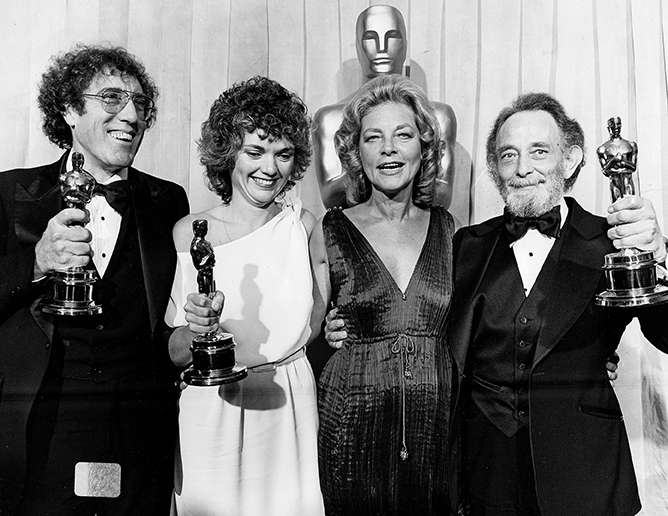
Robert C. Jones, left, Nancy Dowd, second from left, and Waldo Salt with their Oscars for writing Coming Home backstage at the Academy Awards with presenter Lauren Bacall in 1979.
Confident in Jones’s ability to bring out the best in the footage he shot, Ashby gave himself permission to step away from day-to-day involvement in postproduction. “In simple terms, [Jones] freed him to be a director first and to be able to not feel a sense of obligation to be in the cutting room too much,” Dawson said. “It allowed him to sort of live his life a little bit: He’d finish production and hand off the film to Bob Jones. . . . He knew that the movie was in good hands.”
Yet Ashby had bigger plans for Jones, who was tasked by the director to get the screenplay for “Coming Home” ready to shoot. “There were a decent number of credited and uncredited writers on that film, including Ashby himself,” Dawson said. “Jones was somebody that he trusted. It’s a testament to his incredible abilities, and that rare combination of skills, that the film is so good.” After winning an Oscar for “Coming Home,” Jones wrote the script used during the filming of “Being There” (though Jerzy Kosinski, upon whose novel the film was based, received the sole on-screen credit). “The version of ‘Being There’ that was shot was Jones’s script,” Dawson said.
Ashby and Jones would eventually go their separate ways, but his demand as a top picture editor never abated. Jones also worked on Tony Scott’s “Days of Thunder” (1990) and Harold Becker’s “City Hall” (1996). In his capacity as a screenwriter, he penned episodes of Shelley Duvall’s acclaimed series “Faerie Tale Theatre.” In 2014, Jones received a Career Achievement Award from the American Cinema Editors.
“Bobby is the kind of guy who could do just about anything,” Zimmerman said.
And Ashby’s films lost a little of their magic in the absence of Jones, the man who was, for so long, his go-to editor. “I feel like he maybe thought it was a bit too easy — that it was kind of a bit of a cheat — to have Bob Jones as your editor,” Dawson said.
Cut to Black: Gene Lewis Jr., Editorial Assistant
For each day in the month of February, the Committee will be highlighting African-American members, both past and present, and their accomplishments. We look forward to showing the contributions and influences African-Americans have had on the industry.
Name: Gene Lewis Jr
What’s your job? Editorial Assistant
List the credits you’re most proud of. “Jingle Jangle,” “Bumblebee”
What are you working on right now? An independent short film
Who and what are your influences and/or mentors? Paul Rubell, ACE, Jeff Ford, ACE, William Goldenberg, ACE, Leslie Webb, Lillian Benson, ACE, Leander Sales, Saleem Aziz, and Wellington Harrison.
What books are you reading, shows are you watching and/or movies you’re excited about? I am presently reading “A Long Time Ago in A Cutting Room Far, Far Away…Paul Hirsch.” I’ve recently watched “The Mandalorian” season 2 and completed “Lupin.” I’m excited about “No Time to Die” and “Black Widow.”
What would be your superhero name? The Reciprocator
What are your Black History Month memories and any cultural or historical impacts on your life? Watching the Bud Billiken Day Parade while growing up in Chicago. Having Harold Washington be Chicago’s first Black Mayor, watching him setting the bar high, not just as a black person in Gov’t, but as a person that carried himself in a positive way. Malcolm X, not in an obvious way, but as a man that constantly evolved as he arrived at different truths.
What’s the best piece of advice you’ve been given? “Get used to being told no, no matter how successful you are, you will always be told no, but be ready to standby what you believe. – Richard Zanuck.
If you could time travel, when would you go and why? If I could time travel, I’d like to go to Chicago Millennium Park, 2008, the night that President Obama won. I’d want to feel the electricity of that crowd.
What’s a little known fact about you? What are your hidden (or not so hidden) talents? I’ve been called a Cinefile and I’ve recently embraced the title. My love goes from silent to present. It’s been a while, but I also sketch and sometimes paint.
What would be your dream project to work on? My dream project for so many years was a story of the Red Tails, also to tell a cinematic tale of the Buffalo Soldier.
Cut to Black: You’ve Got a Date with Black Love
For each day in the month of February, the Committee will be highlighting African-American members, both past and present, and their accomplishments. We look forward to showing the contributions and influences African-Americans have had on the industry.
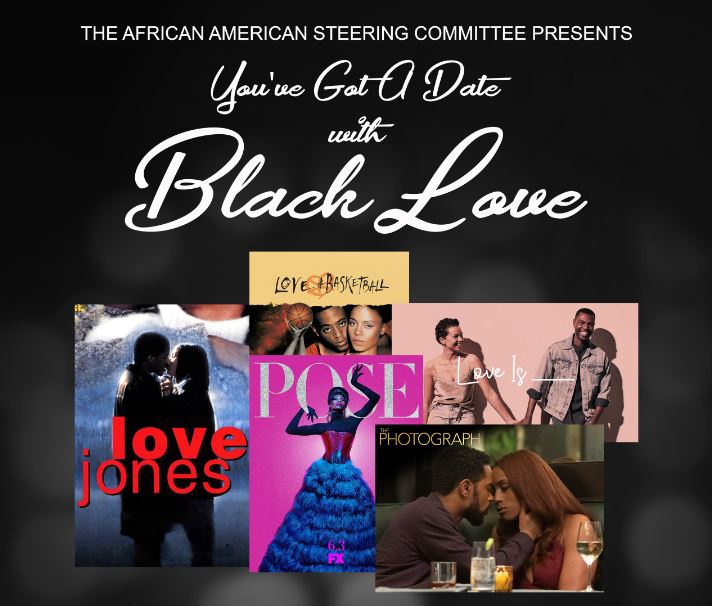
Hear the editors discuss their work on these films.
Chef’s kiss to that!
YOU’VE GOT A DATE WITH BLACK LOVE
Cut to Black: Stephanie Brown, Dialogue Editor
For each day in the month of February, the Committee will be highlighting African-American members, both past and present, and their accomplishments. We look forward to showing the contributions and influences African-Americans have had on the industry.
Name: Stephanie Brown
What’s your job? Dialogue Editor
List the credits your most proud of: I look back on all of my credits in fondness, usually because of the people involved and the experiences I had on them. However, when I first moved out to LA, I was an intern on “The Matrix,” and worked on the subsequent movies. Knowing how much of an impact those movies have had the movie industry makes me feel proud have had some small part of that. I was also the Sound Supervisor on the “Crips and Bloods: Made in America” documentary. As someone who is not from Los Angeles, it was very humbling working on that documentary and learning a little about the history of South Los Angeles, and the factors that lead up to the subject matter of the documentary.
What are you working on right now? Sylvester Stallone has done a recut of “Rocky IV,” and I am the Dialogue and ADR Supervisor.
Who are your mentors? To be honest, everyone I work with, I learn something. However, when I first started off in the industry three people took me under their wing and have had the greatest influences on my career: Dane Davis, Julia Evershade and Nancy Barker.
Movies I am excited about: I have always loved movies from a young child and my favorite movies/genres are straight out action films. Always have and always will. They encompass for me what I want when I go to the movies: a ridiculous escape. I am a ‘believer’ in the “Fast and Furious” series and eagerly await “Fast 9.” No shame.
What is the best piece of advice you have been given: Always honor your word and intention.
What’s a little know fact about you? Hidden talent? I know tons of useless movie trivia, and I can move my ears.
What is your favorite Black movie moment? Like I mentioned before, growing up I just loved action movies (comedies are a close second) and silly as it may sound Ernie Hudson’s character Winston in “Ghostbusters.” When he shows up to apply to be a Ghostbuster, it was a completely unexpected moment for me at such a young age and created such a dynamic in the movie that makes It one of my all time favorites and he says one of my favorite movie lines of all time, “Ray, when someone asks if you’re a god, you say YES!”
Was there a television show/movie that inspired you to pursue your career: I remember in high school one of my friends had a laser disc of “Raiders of the Lost Ark” and we were watching a behind the scenes piece on the making of and they had a segment on the how the sound was made. Blew my mind and planted the seed.
What’s your professional mantra? Be someone people want to work with.
What was the last show/movie that left you speechless? I don’t remember the last movie/show that left me speechless, but I do remember the first: “LA Confidential.”
Cut to Black: Sharia Lynn Davis, Assistant Editor
For each day in the month of February, the Committee will be highlighting African-American members, both past and present, and their accomplishments. We look forward to showing the contributions and influences African-Americans have had on the industry.
What’s your job? My current job is an Assistant Editor for various movies/films.
List the credits you’re most proud of. My very first movie, “Get On Up,” “Pirates of the Caribbean: Dead Men Tell No Tales,” “Red Sparrow,” “Good Boys,” and “Jungle Cruise.”
Who and what are your influences and/or mentors? In addition to the strong women in my family who have been my role models, I have been influenced by the many editors that I have worked with. I have also had the opportunity to be mentored by editors, Joi McMillon, ACE and Terilyn A. Shropshire, ACE who have offered their support and encouragement as I continue in this field.What books are you reading, shows are you watching and/or movies you’re excited about? I am currently reading Trevor Noah’s “Born a Crime.” It’s a great book and history lesson told from the viewpoint of a young boy growing up in post-apartheid South Africa.
Currently, my favorite shows are “Cobra Kai,” “Your Honor,” and “This Is Us.” And I am looking forward to seeing “Coming to America 2”. During this difficult time, we all need a laugh and I hope it meets my expectations.
What would be your superhero name? My superhero name would be TVShay. I have always been amazed at the wonders of “TV” since I was a small child and looked forward to one day having a part in “TV” and finding ways to make it better.
What are your Black History Month memories and any cultural or historical impacts on your life? Before joining the Editors Guild, I was a television reporter for six years at a station in Toledo, Ohio. Every February, another reporter and I would write, shoot and edit Black History vignettes to give our viewers a brief history lesson on Black Excellence. One story I edited touched so many viewers. It was a brief historical perspective of Obama becoming president thus fulfilling the dream of Dr. Martin Luther King. It was because of that story that I decided to switch careers and pursue my dream to become an Editor.
What’s the best piece of advice you’ve been given? The best piece of advice I have been given is, Always Dream the Impossible Dream.
If you could time travel, when would you go and why? If I could travel back in time, it would be back to 1990. It was a time when many of my family members were still alive and well. I was 9 years old and surrounded by so much love, felt safe, and had so much confidence that I could conquer the world.
What’s a little known fact about you? What are your hidden (or not so hidden) talents? I play the clarinet, trumpet, and make a really good pizza!
What’s your personal/professional mantra? “Trust the Process.” Life may not move the way you want it to, but if you trust the process, your life will go where it’s supposed to be.
What’s the last show/movie that left you speechless? The most recent movie that left me speechless was “Antebellum.” With the unfortunate racial divide and state of affairs that exist in our country today, I was stunned at the end of the movie, and it left me thinking, could this really happen—or IS this really happening today???
What would be your dream project to work on?
I would love to work on any movie with editors Maysie Hoy, ACE or Joi McMillon, ACE. I value and admire their skills and accomplishments and feel that I could learn so much from working on a project with them.
Cut to Black: Alain Fleury, Picture Editor
For each day in the month of February, the Committee will be highlighting African-American members, both past and present, and their accomplishments. We look forward to showing the contributions and influences African-Americans have had on the industry.
Name: Alain Fleury
What’s your job? Picture Editor
List the credits you’re most proud of. “Transformers: Robots in Disguise.” It was my first union credit, so it’s special to me.
What are you working on right now? Nickelodeon’s “Toymation.” We recreate popular scenes from Nick shows like “SpongeBob” and “Rise of The Teenage Mutant Ninja Turtles” using live action toys. It’s silly, cute and fun.
Who and what are your influences and/or mentors? Toussaint Louverture, Barack Obama, John Singleton, Dave Chappelle, Robert Rodriguez.
What books are you reading, shows are you watching and/or movies you’re excited about? I’m currently reading “Ready Player One. I’m excited for any shows or movies that are part of the Marvel cinematic universe.
What would be your superhero name? McFleury
What are your black history month memories and any cultural or historical impacts on your life? In 1804 Haiti became the first Black Republic. A group of Haitian freedom fighters defeated Napoleon and his army to gain their independence. This is one of the most defining moments for Africans across the world. They are my heroes.
What’s the best piece of advice you’ve been given? Do something you love so you don’t ever have to work a day in your life.
What’s a little known fact about you? What are your hidden (or not so hidden) talents? I’m fluent in French.
What’s your favorite (Black) television/movie moment? On “Fresh Prince of Bel-Air” when Will had to confront the truth about his father.
Was there a television show/movie that inspired you to pursue your career? “El Mariachi” and “Boyz N the Hood.”
What’s the last show/movie that left you speechless? “Avengers: Endgame”
What would be your dream project to work on? “Black Panther”


